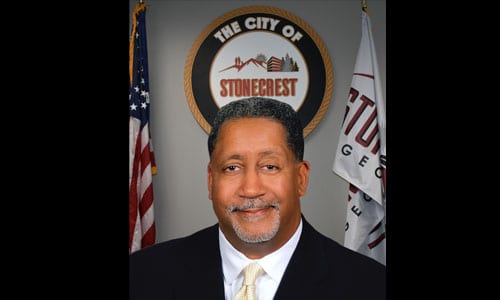
Mayor Jason Lary released a COVID-19 Executive Orderon March 23 and says he is offering the Sam’s Club building to Gove. Brian Kemp as a temporary medical facility.
The mayor’s orders align with those of the governor and DeKalb CEO Michael Thurmond who each gave their COVID-19 addresses earlier today. The mayor’s orders which are effective today, mandate the following:
- Public gatherings of 10 or more people are prohibited
- Citizens are asked to participate in a voluntary curfew from 9 p.m. to 6 a.m. daily except for trips for work, food, or medical treatments and emergencies
- All city playgrounds and parks are closed.
Effective at 12:01 a.m. March 24, 2020
- Dine-in service at any restaurant or bar is prohibited. Establishments licensed to sell alcoholic beverages may sell unopen beverages to curbside, take-out customers
- All non-essential businesses shall have hours of operation beginning no earlier than 6 a.m. and ending no later than 9 p.m. See Appendix A for a list of essential businesses
- Indoor church services such as funerals should be limited to no more than 10 people. Graveside services of 10 or less participants are encouraged
- Gyms, fitness centers, and personal grooming services shall reduce the maximum occupants to 10 people
- All employers and businesses that remain open to the public must make every effort to restrict personal contact and maintain a six-foot distance between employees and guests.
The mayor said that he intends on contacting the governor after hearing Kemp’s briefing that, in part, asked for facilities to house medical units. “We will offer our recently purchased Sam’s Club for temporary use as medical housing, testing, or whatever deemed necessary to serve the state and our citizens. Hopefully, this will give Georgia a facility in this area that will help make sure that this virus is quickly contained and cured,” Mayor Lary said
Essential businesses are defined as
- Healthcare operations
- Government and municipal services
- Utility companies
- Banks and credit unions
- Food establishments such as grocery stores and convenience stores
- Pharmacies
- Delivery Services
- Essential Infrastructure Companies – MARTA, Lyft, Uber, and telecommunications
- Manufacturing/construction companies to maintain public health, safety, and welfare
- Auto repair and gas stations
- Childcare or elderly care facilities
- Funeral homes and cemeteries
- Warehouses and distribution facilities
- Dry cleaners
- Janitorial and cleaning services
- Any service not listed but later deemed by the mayor to be essential for the protection of public health, safety, and welfare.


![Validate my RSS feed [Valid RSS]](https://web.archive.org/web/20240108205913im_/https://ocgnews.com/wp-content/uploads/2022/07/valid-rss-rogers.png)

